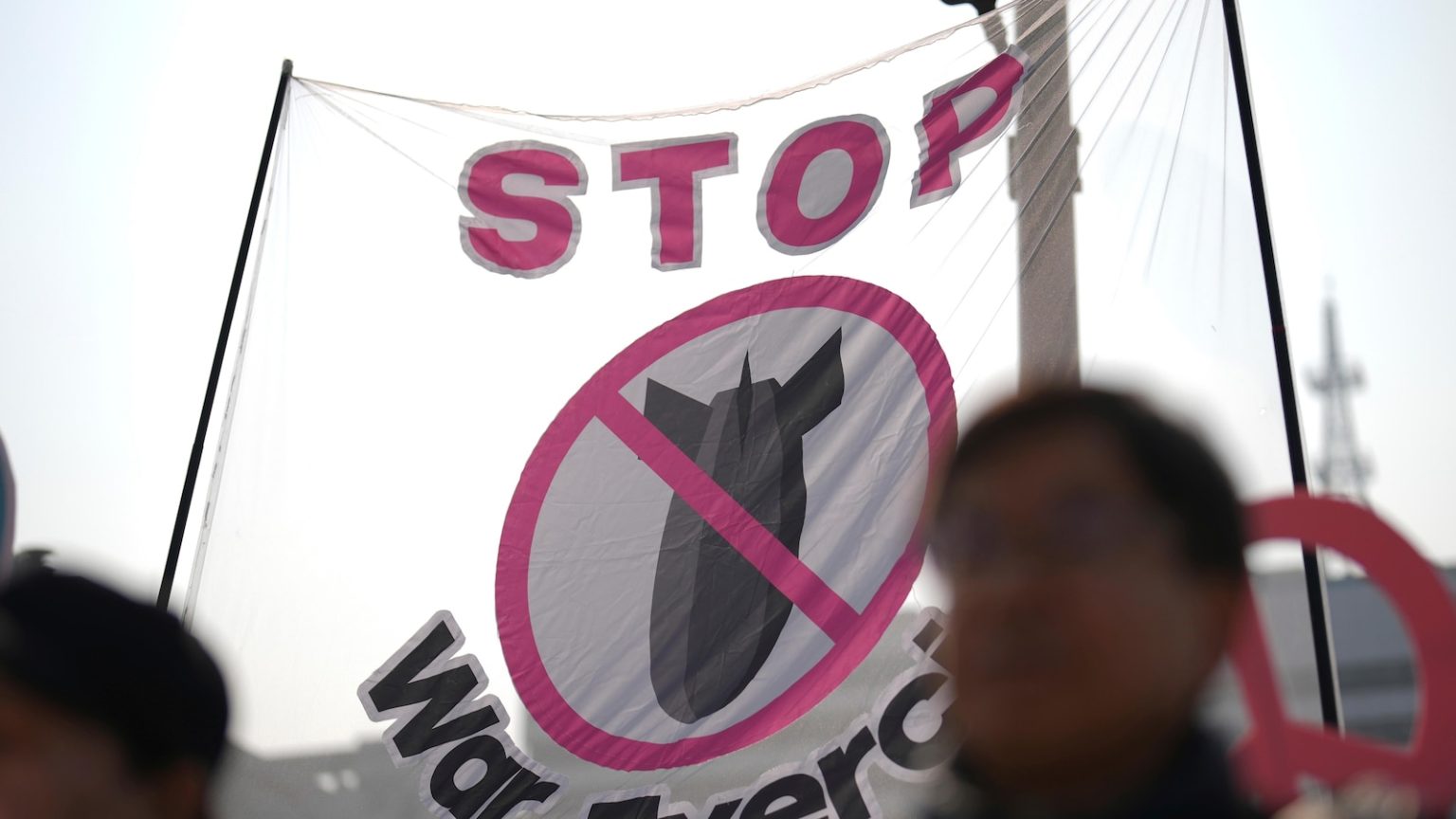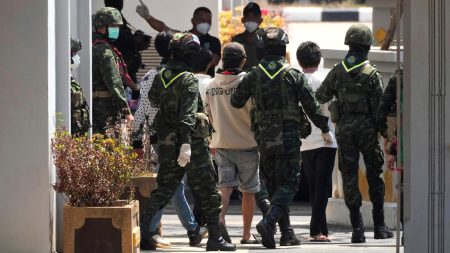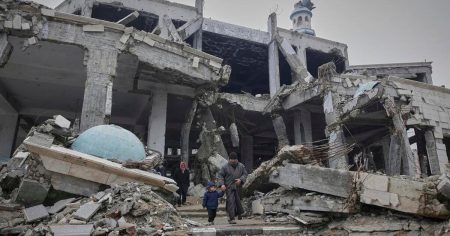North Korea Fires Ballistic Missiles in Response to Joint Military Drills
SEOUL, South Korea — Tensions on the Korean Peninsula escalated sharply on Monday as North Korea fired several ballistic missiles into the sea, according to South Korea’s military. This provocative action came just hours after South Korean and U.S. forces launched their annual Freedom Shield command post exercise, a large-scale military training event that North Korea has long condemned as a rehearsal for invasion. The missile launches, marking North Korea’s fifth such event this year, were detected from the southwestern Hwanghae province. While specific details, such as the range of the missiles, were not disclosed, South Korea’s Joint Chiefs of Staff confirmed that the country had heightened its surveillance and was closely coordinating with the United States to monitor the situation. The timing of the missile firings was clearly a strategic response to the joint drills, signaling North Korea’s continued opposition to the alliance between South Korea and the U.S.
Annual Military Exercises Spark Tensions with North Korea
Earlier on Monday, the South Korean and U.S. militaries began their annual Freedom Shield exercise, the first major combined training under President Donald Trump’s second term. The drills are part of a broader set of exercises aimed at strengthening the allies’ military readiness and cooperation. While the exercises are defensive in nature, North Korea has consistently viewed them as a direct threat, interpreting them as a simulation for an invasion. This year’s drills were particularly significant, as they followed a series of smaller field training exercises that had already heightened tensions in the region. The exercises also came at a sensitive time, just days after a tragic incident during a live-fire drill involving South Korean fighter jets, which mistakenly bombed a civilian area near the North Korean border.
North Korea Warns of Potential Physical Conflict
North Korea’s Foreign Ministry issued a stern warning on Monday, denouncing the Freedom Shield training as an “aggressive and confrontational war rehearsal.” The statement reiterated North Korean leader Kim Jong Un’s vow to achieve “radical growth” in the country’s nuclear capabilities, which he claims are necessary to counter the growing threats posed by the U.S. and its Asian allies. The ministry emphasized that the drills risked triggering a “physical conflict” on the Korean Peninsula, a stark reminder of the delicate balance of power in the region. This rhetoric underscores North Korea’s longstanding position that it views any form of military cooperation between South Korea and the U.S. as a direct challenge to its sovereignty and security.
Tragic Error During Live-Fire Drill Halts Military Exercises
The launch of the Freedom Shield exercise was overshadowed by a devastating incident during a live-fire drill just days earlier. On Thursday, two South Korean KF-16 fighter jets mistakenly fired eight MK-82 bombs at a civilian area in Pocheon, a town near the North Korean border. The bombing injured about 30 people, two of whom suffered serious injuries. The incident occurred during a warm-up drill ahead of the Freedom Shield exercise, raising serious concerns about the safety and precision of South Korea’s military operations. The initial assessment by the South Korean air force pointed to a combination of human error and communication failures. One pilot allegedly entered the wrong coordinates and failed to visually verify the target before launching the attack. The second pilot, while having the correct coordinates, reportedly focused solely on maintaining flight formation and followed the first pilot’s instructions without recognizing the mistake. The incident has led to widespread outrage and calls for greater accountability within the military.
Military Leaders Apologize, Halt Live-Fire Training
In response to the tragic error, Gen. Lee Youngsu, chief of staff of the South Korean air force, publicly apologized on Monday for the injuries and property damage caused by the bombing. He described the incident as “unacceptable” and pledged that it “should have never happened and must never happen again.” Both the South Korean and U.S. militaries have since halted all live-fire exercises in South Korea while an investigation into the incident is conducted. South Korean military officials have assured the public that live-fire training will resume only after the investigation is complete and measures are put in place to prevent similar incidents in the future. The pause in training highlights the need for greater oversight and safety protocols to ensure that military exercises do not inadvertently harm civilians.
Implications for Regional Security and Diplomacy
The combination of North Korea’s missile launches, the joint military drills, and the tragic bombing error has created a volatile environment on the Korean Peninsula. While the halting of live-fire exercises is a necessary step to address the recent incident, it also underscores the challenges faced by South Korea and the U.S. in maintaining military readiness while minimizing the risk of accidents. At the same time, North Korea’s continued missile tests and fiery rhetoric demonstrate its unwavering commitment to expanding its nuclear capabilities, further complicating efforts to stabilize the region. As tensions remain high, the international community is once again reminded of the urgent need for diplomacy and dialogue to prevent escalation and promote long-term peace on the Korean Peninsula.















